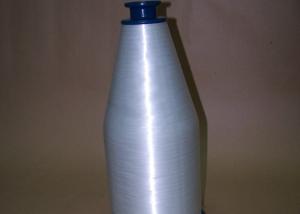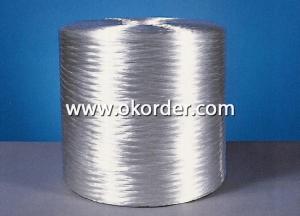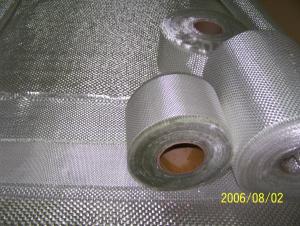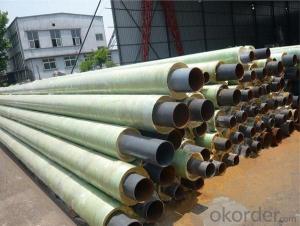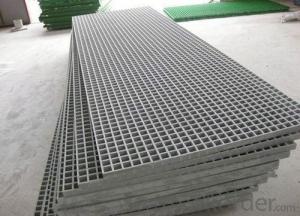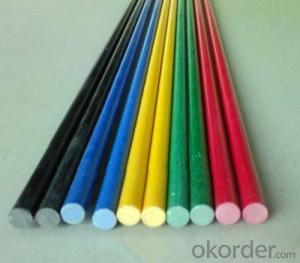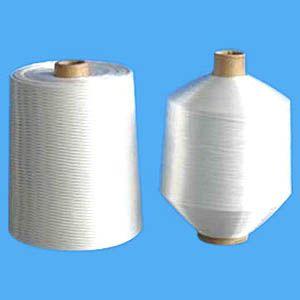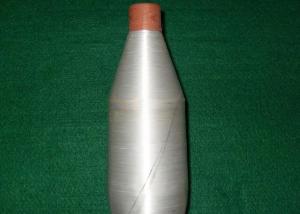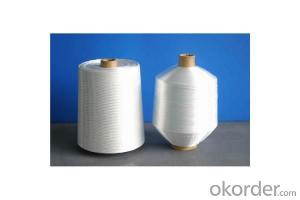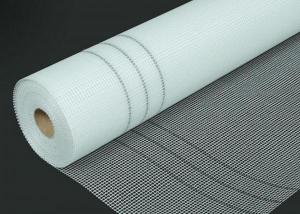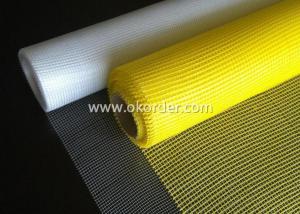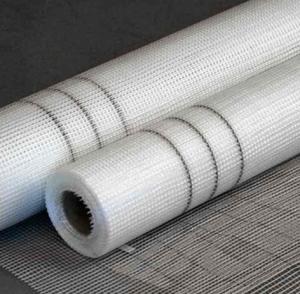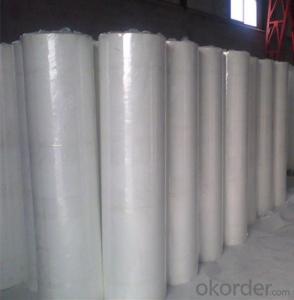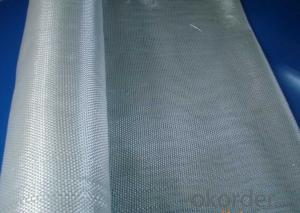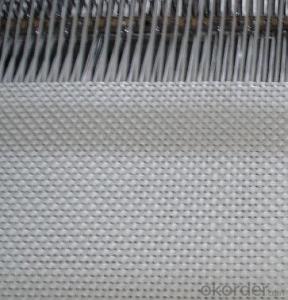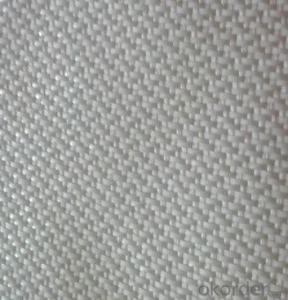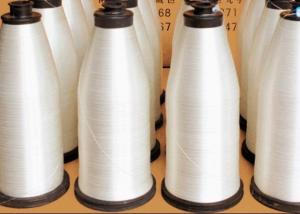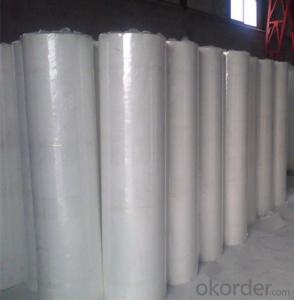Fiberglass Yarn EC5.5-6*1*2 S110
- Loading Port:
- China Main Port
- Payment Terms:
- TT or L/C
- Min Order Qty:
- 1Ton kg
- Supply Capability:
- 100000Kg/Month kg/month
OKorder Service Pledge
OKorder Financial Service
You Might Also Like
packaging & Delivery of Fiberglass Yarn EC5.5-6*1*2 S110
Specifications of Fiberglass Yarn EC5.5-6*1*2 S110
Uniform and stable linear density
Good sizing protection,low fuzz
high tensile strength of monofilament
Easy to impregnate wi
1.Uniform and stable linear density
2.Good sizing protection,low fuzz
3.high tensile strength of monofilament
4.Easy to impregnate with resin
Application of Fiberglass Yarn EC5.5-6*1*2 S110
Engineering plastics,electrical insulation,cable coating,communications equipment,appliances,building materials,etc.
Product specification of Fiberglass Yarn EC5.5-6*1*2 S110
Code description of Fiberglass Yarn EC5.5-6*1*2 S110
Example: EC8-24*1*2 S110
E: glass type; C: continuous filament; 8: filament diameter; 24: linear density;
1: the number of reversing shares
2: the number of assembled shares; S: twist direction; 110; twist number
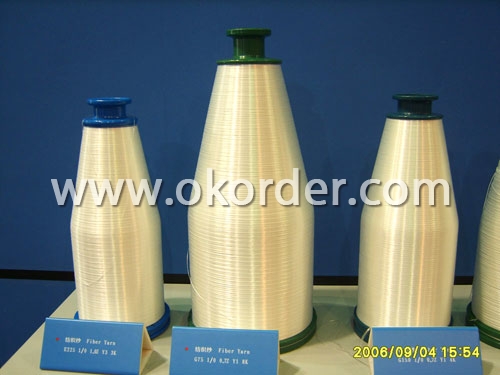

- Q:What are the common uses of fiberglass yarn in construction?
- Fiberglass yarn is widely used in construction for various applications due to its exceptional strength, durability, and versatility. Some of the common uses of fiberglass yarn in construction include: 1. Reinforcement in concrete: Fiberglass yarn is often used as a reinforcing material in concrete structures such as beams, columns, and slabs. The high tensile strength of fiberglass yarn enhances the structural integrity of concrete and prevents cracking, improving its overall durability. 2. Insulation: Fiberglass yarn is commonly used as an insulation material in the construction industry. It is used in lightweight insulation boards, HVAC duct insulation, thermal blankets, and pipe insulation. The yarn's heat-resistant properties help to regulate temperature, improve energy efficiency, and enhance fire resistance in buildings. 3. Roofing materials: Fiberglass yarn is used in the production of roofing shingles and tiles. Its high strength and resistance to weathering make it an ideal material for protecting buildings from external elements such as rain, UV radiation, and strong winds. Fiberglass yarn also provides flexibility, ensuring that the roofing materials can withstand thermal expansion and contraction. 4. Wall reinforcements: Fiberglass yarn is used to reinforce wall systems, including drywall, plaster, and stucco. It helps to prevent cracking and sagging, providing added strength and stability to the walls. Fiberglass yarn is also resistant to moisture, reducing the risk of mold or mildew growth in walls. 5. Composite materials: Fiberglass yarn is a key component in the production of composite materials used in construction. It is combined with resins to create fiberglass-reinforced polymer (FRP) products, such as panels, pipes, and profiles. These FRP composites offer excellent strength-to-weight ratio, corrosion resistance, and can be molded into various shapes, making them suitable for a wide range of construction applications. Overall, fiberglass yarn plays a crucial role in enhancing the performance, durability, and safety of construction materials and structures. Its versatility and unique properties make it a popular choice in the industry.
- Q:Can fiberglass yarn be woven into fabrics?
- Yes, fiberglass yarn can be woven into fabrics.
- Q:Can fiberglass yarn be used in construction applications?
- Yes, fiberglass yarn can be used in construction applications. It is commonly used for reinforcing concrete, creating strong and durable structures. It is also used for insulation, as it is fire-resistant and provides thermal protection. Additionally, fiberglass yarn can be used for manufacturing lightweight and corrosion-resistant components in construction projects.
- Q:Can fiberglass yarn be used in automotive exhaust systems?
- Yes, fiberglass yarn can be used in automotive exhaust systems. Fiberglass yarn is known for its high-temperature resistance and excellent insulation properties, which make it suitable for use in exhaust systems that generate high levels of heat. It is commonly used as a reinforcement material in mufflers, pipes, and other components of automotive exhaust systems. The fiberglass yarn helps to enhance the durability and longevity of these components by providing thermal insulation and reducing heat transfer to surrounding parts. Additionally, fiberglass yarn is lightweight and corrosion-resistant, making it an ideal choice for automotive applications.
- Q:What are the different twisting directions used for fiberglass yarn?
- There are typically two twisting directions used for fiberglass yarn: S-twist and Z-twist. S-twist refers to the yarn being twisted in a counterclockwise direction, while Z-twist refers to the yarn being twisted in a clockwise direction.
- Q:Can fiberglass yarn be used in outdoor applications?
- Yes, fiberglass yarn can be used in outdoor applications.
- Q:Is fiberglass yarn resistant to acids or alkalis?
- Fiberglass yarn boasts remarkable acid and alkali resistance. This can be attributed to its inorganic composition, primarily consisting of silica, which grants it formidable protection against chemical harm. Fiberglass yarn remains largely unaffected by acids like sulfuric acid, hydrochloric acid, and nitric acid, rendering it a dependable material for industries working with corrosive substances. Likewise, fiberglass yarn displays resistance to alkalis like sodium hydroxide and potassium hydroxide. Thanks to this ability to withstand acids and alkalis, fiberglass yarn finds suitability in a range of industries, including chemical processing, water treatment, and electrical insulation.
- Q:What are the thermal conductivity properties of fiberglass yarn?
- Fiberglass yarn typically has high thermal conductivity properties, allowing it to efficiently transfer heat.
- Q:Is fiberglass yarn resistant to impact or shock?
- Yes, fiberglass yarn is known for its high resistance to impact and shock.
- Q:Is fiberglass yarn resistant to stains?
- Yes, fiberglass yarn is resistant to stains. The nature of fiberglass, being a synthetic material, makes it highly resistant to most types of stains. This is due to its non-absorbent properties, which prevent liquids or substances from penetrating the surface of the yarn and causing permanent stains. Additionally, fiberglass yarn is typically coated with a protective layer that further enhances its stain resistance. As a result, it is commonly used in applications where stain resistance is crucial, such as in the production of carpets, upholstery, and textiles. However, it is important to note that while fiberglass yarn is highly resistant to stains, it may still be susceptible to certain substances or chemicals that could potentially cause discoloration. Therefore, it is advisable to follow any recommended cleaning and maintenance instructions provided by the manufacturer to ensure the longevity and stain resistance of fiberglass yarn products.
1. Manufacturer Overview |
|
|---|---|
| Location | Shandong, China |
| Year Established | 2008 |
| Annual Output Value | US$ 5 Million - US$ 10 Million |
| Main Markets | North America, Eastern Europe, Southeast Asia, Mid East, Eastern Asia |
| Company Certifications | |
2. Manufacturer Certificates |
|
|---|---|
| a) Certification Name | |
| Range | |
| Reference | |
| Validity Period | |
3. Manufacturer Capability |
|
|---|---|
| a)Trade Capacity | |
| Nearest Port | Qingdao |
| Export Percentage | 41%-50% |
| No.of Employees in Trade Department | 3-5 People |
| Language Spoken: | English, Chinese |
| b)Factory Information | |
| Factory Size: | 10400 square meters |
| No. of Production Lines | Above 10 |
| Contract Manufacturing | Design Service Offered Buyer Label Offered |
| Product Price Range | Average |
Send your message to us
Fiberglass Yarn EC5.5-6*1*2 S110
- Loading Port:
- China Main Port
- Payment Terms:
- TT or L/C
- Min Order Qty:
- 1Ton kg
- Supply Capability:
- 100000Kg/Month kg/month
OKorder Service Pledge
OKorder Financial Service
Similar products
New products
Hot products
Hot Searches
Related keywords
